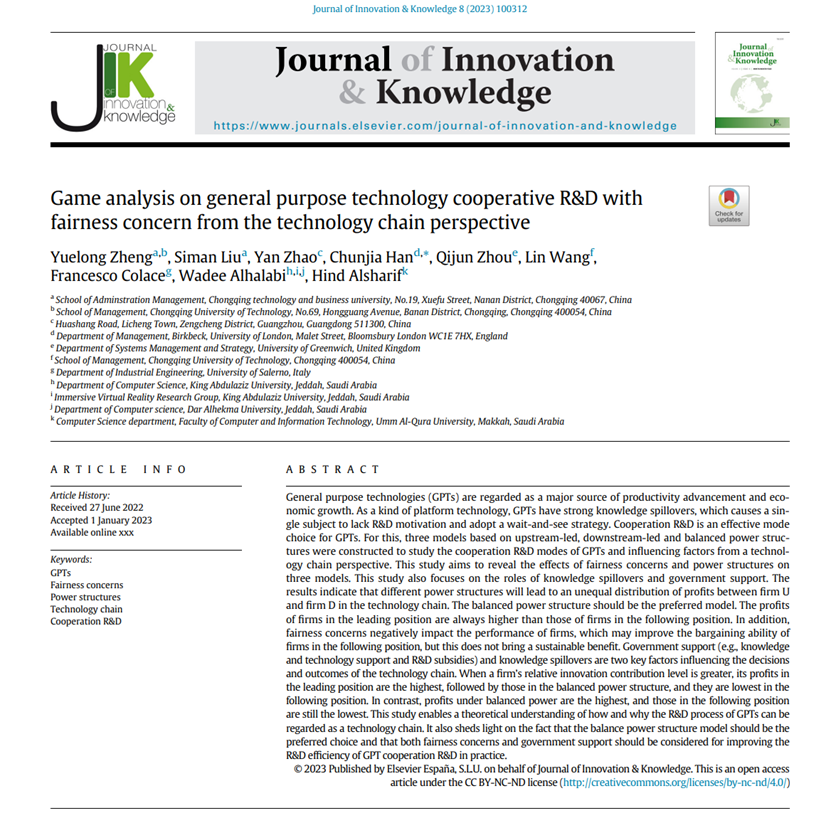【全文链接】
Yuelong Zheng, Siman Liu, Yan Zhao, Chunjia Han, Qijun Zhou, Lin Wang, Francesco Colace, Wadee Alhalabi, Hind Alsharif. Game analysis on general purpose technology cooperative R&D with fairness concern from the technology chain perspective [J]. Journal of Innovation & Knowledge, 2023. 100312.
https://doi.org/10.1016/j.jik.2023.100312
【第一作者】
郑月龙,重庆工商大学工商管理学院教授,研究方向为技术创新管理、博弈论及运用领域研究。
【论文摘要】
General purpose technologies (GPTs) are regarded as a major source of productivity advancement and economic growth. As a kind of platform technology, GPTs have strong knowledge spillovers, which causes a single subject to lack R&D motivation and adopt a wait-and-see strategy. Cooperation R&D is an effective mode choice for GPTs. For this, three models based on upstream-led, downstream-led and balanced power structures were constructed to study the cooperation R&D modes of GPTs and influencing factors from a technology chain perspective. This study aims to reveal the effects of fairness concerns and power structures on three models. This study also focuses on the roles of knowledge spillovers and government support. The results indicate that different power structures will lead to an unequal distribution of profits between firm U and firm D in the technology chain. The balanced power structure should be the preferred model. The profits of firms in the leading position are always higher than those of firms in the following position. In addition, fairness concerns negatively impact the performance of firms, which may improve the bargaining ability of firms in the following position, but this does not bring a sustainable benefit. Government support (e.g., knowledge and technology support and R&D subsidies) and knowledge spillovers are two key factors influencing the decisions and outcomes of the technology chain. When a firm's relative innovation contribution level is greater, its profits in the leading position are the highest, followed by those in the balanced power structure, and they are lowest in the following position. In contrast, profits under balanced power are the highest, and those in the following position are still the lowest. This study enables a theoretical understanding of how and why the R&D process of GPTs can be regarded as a technology chain. It also sheds light on the fact that the balance power structure model should be the preferred choice and that both fairness concerns and government support should be considered for improving the R&D efficiency of GPT cooperation R&D in practice.
